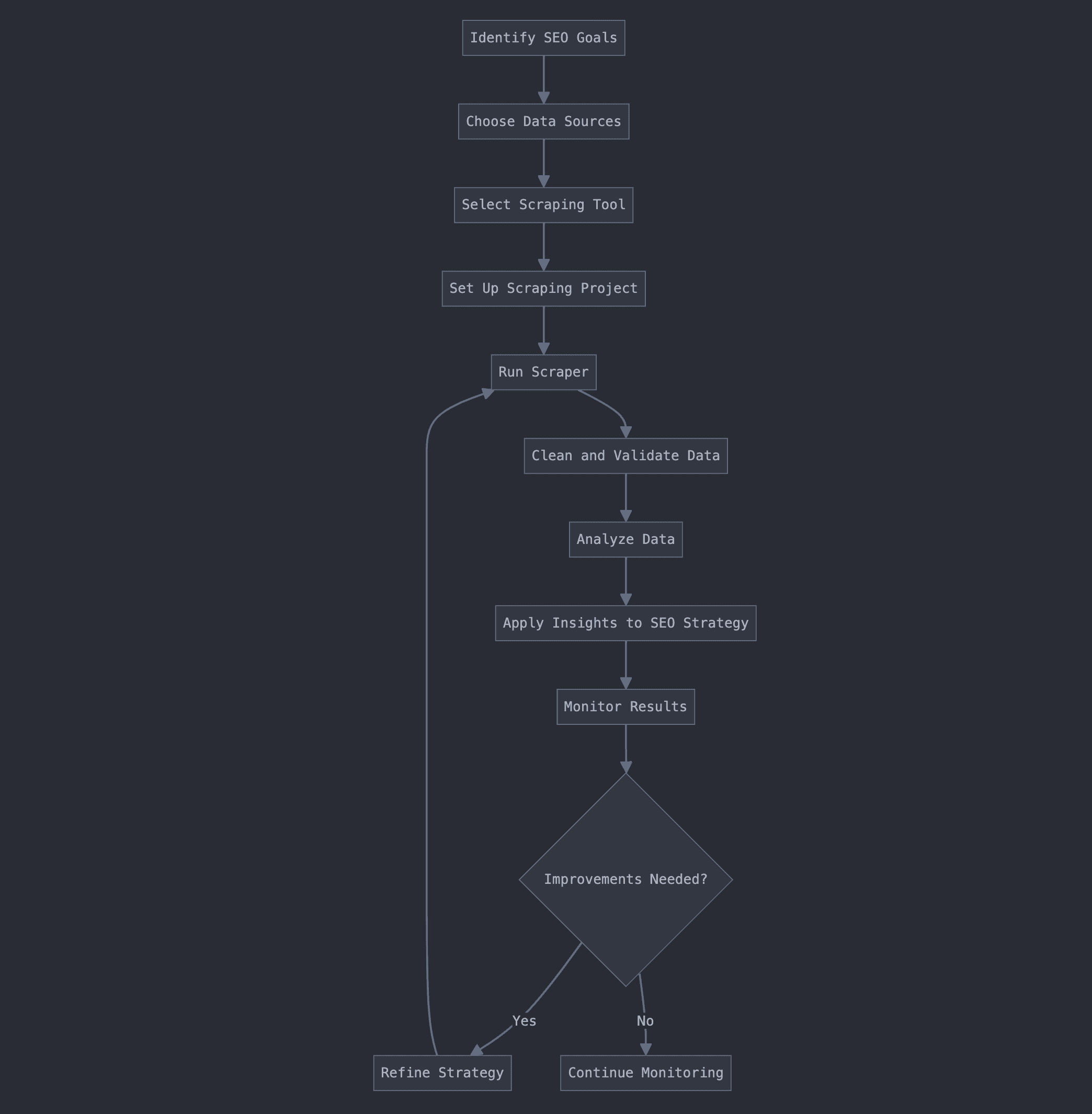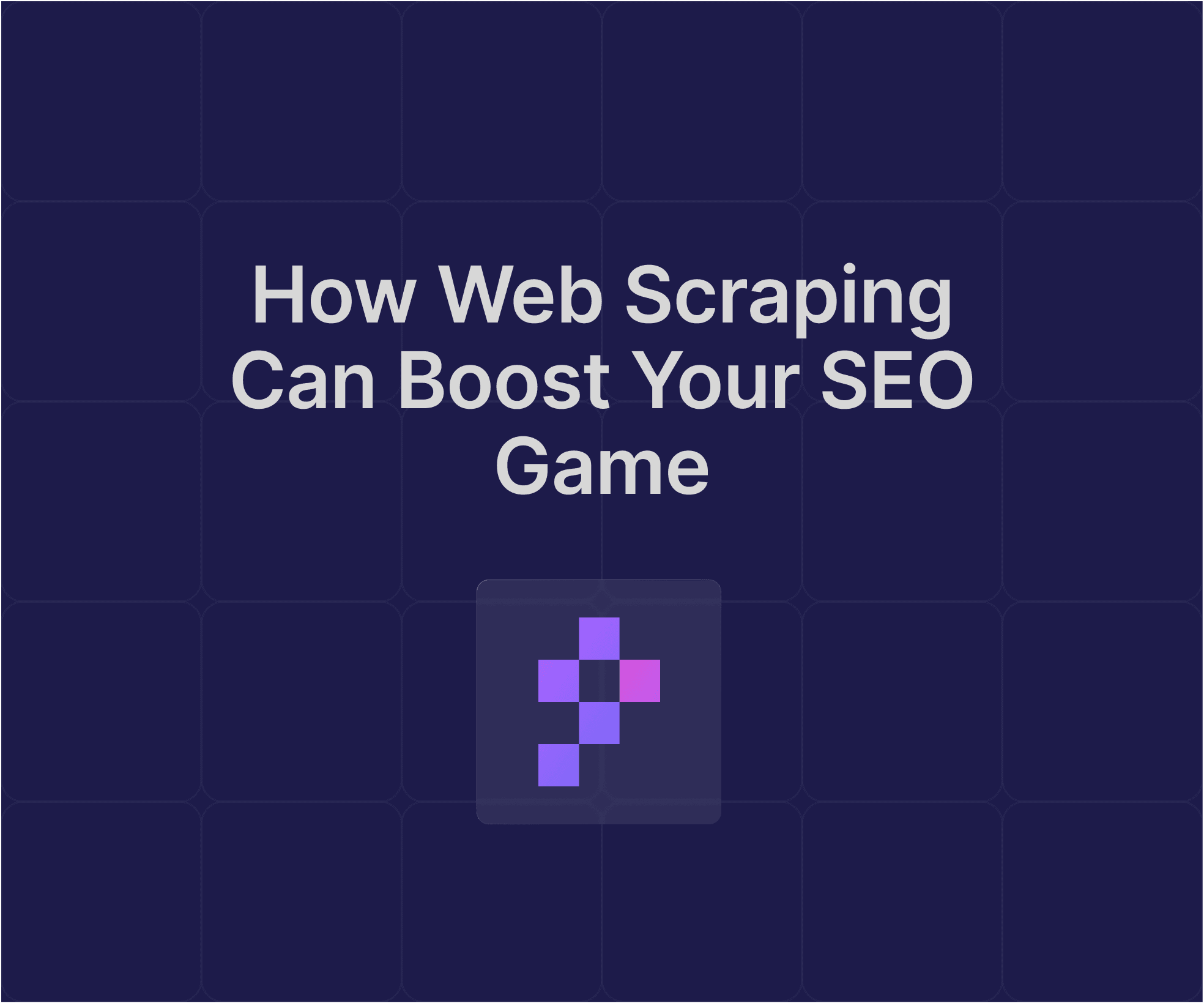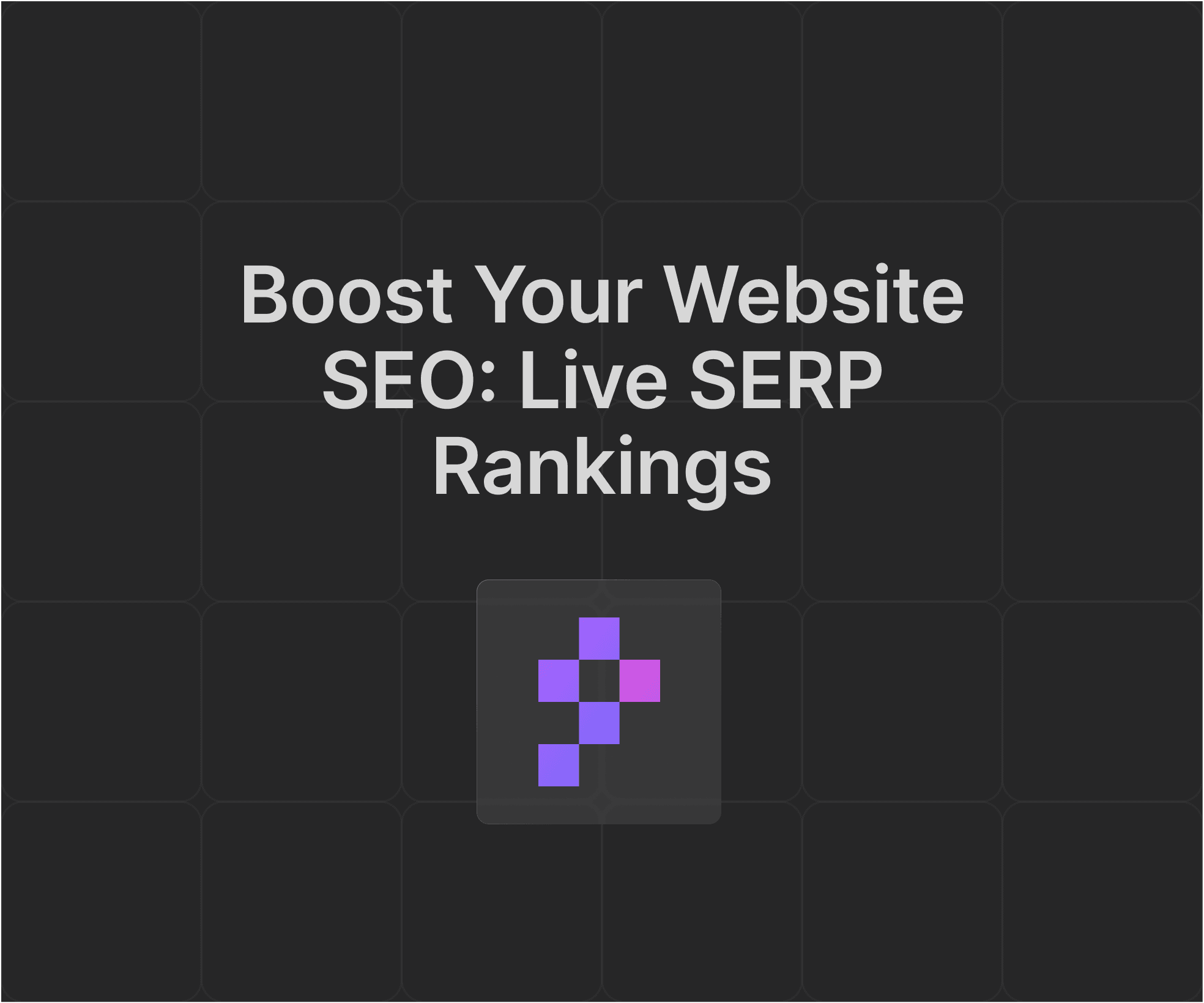Web Scraping
How Web Scraping Can Boost Your SEO Game
Getting Started with Web Scraping for SEO
In today's digital world, search engine optimization (SEO) is super important for any business or website that wants to do well online. SEO is all about making your website and content show up higher in search results. One really useful tool that not enough people are using is web scraping. It's a way to grab data from different places online - like your competitors' websites, search results, and other relevant sites - to get helpful information that can make your SEO strategy even better.
How SEO and Web Scraping Have Changed Over Time
To really get why web scraping is such a big deal for SEO, it helps to look at how both have changed:
Back in the Day (1990s-early 2000s)
SEO was mostly about stuffing keywords and using meta tags
There wasn't much data to work with
People did research and made changes by hand
Web Scraping Shows Up (mid-2000s)
Basic scraping tools start to appear
Mostly used for checking prices and keeping an eye on products
Not used much for SEO yet
SEO Gets Smarter (late 2000s-early 2010s)
Google updates its algorithm to focus on quality content
Backlinks and user experience become more important
People start needing more data to analyze
Web Scraping Meets SEO (2010s-now)
Better scraping techniques and APIs come along
Machine learning and AI start helping with data analysis
Web scraping becomes a key tool for competitive SEO strategies
Now, SEO and web scraping work together, with data-driven ideas helping to make better optimization strategies.
3. Cool Ways to Use Web Scraping for SEO
Finding the Right Keywords
Keywords are super important for good SEO. Web scraping can help you find valuable keywords by grabbing data from top-ranking search results, competitor websites, and different keyword tools. Here's how:
Looking at Search Results: Grab data from high-ranking pages to see what keywords they use in titles, descriptions, and content. This helps you understand which keywords are bringing in traffic so you can use them too.
Checking Out Your Competitors' Keywords: Look at your competitors' strategies by scraping their meta tags, headers, and content. You might find keyword ideas you hadn't thought of before.
Finding Long-tail Keywords: Check out Q&A sites, forums, and social media to find longer, more specific keyword ideas.
Keeping an Eye on Your Rankings
It's important to know how well your website is doing in search results. Web scraping can make this process automatic, giving you up-to-date info on how your target keywords are ranking.
Automatic Rank Checking: Use web scraping tools to collect ranking data from Google and other search engines. This helps you see how you're doing over time and make changes based on real data.
Comparing with Competitors: Grab ranking data for your competitors to see how you stack up against them.
Local SEO Rank Checking: If you have a local business, you can use web scraping to see how you're ranking in local search results.
Figuring Out What Your Competitors Are Up To
Understanding what your competitors are doing with their SEO can give you a big advantage. Web scraping lets you gather detailed info on their tactics, including:
Meta Tags and Keywords: Get the meta tags and keywords from competitor websites to understand what they're targeting.
Content Structure and Internal Linking: See how competitors organize their content and link between their own pages.
Backlink Analysis: Grab backlink data to find high-quality places that are linking to your competitors.
Making Your Content Better
Content is super important in SEO, and web scraping can help you make it better for both readers and search engines.
Finding Content Gaps: Scrape content from competitor websites to see what topics they're covering that you haven't talked about yet.
Using User-Generated Content: Check out forums, social media, and review sites to understand how your target audience talks and what they care about.
Spotting Trending Topics: Stay ahead of the game by scraping industry blogs, news websites, and social media platforms to see what's becoming popular.
Understanding Google's Special Features
Knowing about and optimizing for Google's special features can really help your visibility and click-through rates.
Featured Snippet Optimization: Look at featured snippets in your industry to see what kind of content Google likes to show.
People Also Ask (PAA) Research: Grab the questions that show up in the "People Also Ask" section for your target keywords.
Local Pack Optimization: Check out local pack results to understand what factors matter for local SEO.
4. Tools You'll Need for Web Scraping in SEO
Depending on what you need, you can use one of these options:
SERP APIs: Good for SEO-focused scraping. They let you collect data from search results efficiently. Examples: PixelSERP, SEMrush API, Ahrefs API
Web Scraping APIs: More flexible and can scrape different kinds of resources. Examples: ScrapingBee, Apify, Scrapy
No-Code Scraping Solutions: Easy-to-use tools that don't require coding knowledge. Examples: Octoparse, ParseHub, Import.io
Custom Scraping Scripts: For advanced users who need very specific scraping capabilities. Examples: Python with Beautiful Soup or Scrapy, Node.js with Puppeteer
Browser Extensions: Simple tools for small-scale scraping tasks. Examples: Scraper for Chrome, Data Miner, Web Scraper

5. Tips for Doing Web Scraping Right
To make scraping more effective and make sure you're getting the most useful data for your SEO efforts, follow these tips:
Pick Good Sources: Figure out which resources are essential for scraping relevant data.
Choose the Right Data: Focus on key elements like meta tags, titles, keywords, and backlinks.
Use the Right Tools: Pick appropriate tools for collecting data from your chosen sources.
Set Up Regular Monitoring: Make sure your data stays up-to-date by creating systems for automatic, regular updates.
Clean and Check Your Data: After you collect data, clean it up and make sure it's accurate.
6. Playing Nice: Ethics and Legal Stuff
While web scraping can give you great info for your SEO strategy, it's important to do it ethically and legally. Here are some things to keep in mind:
Pay Attention to Robots.txt: Always check and respect the robots.txt file of a website, which tells you which pages you can or can't scrape.
Don't Overload Websites: Be careful not to put too much strain on websites with your scraping activities.
Ask Permission When Needed: For websites with strict rules, consider reaching out to get permission before scraping.
Use Data Responsibly: Make sure you use the data you collect responsibly and don't break any privacy policies or data protection laws.
7. Dealing with Common Web Scraping Hiccups in SEO
Web scraping can have some challenges, like:
Getting Blocked: Websites might block your IP if they notice automated scraping, so think about using proxies.
CAPTCHAs: Some sites use CAPTCHAs to stop automated access. You might need to use CAPTCHA-solving services if necessary.
Dynamic Content: Content that's created with JavaScript can be tricky to scrape. Use tools like Puppeteer to handle dynamic content.
Data Accuracy: Make sure the data you collect is accurate by regularly checking and cleaning your datasets.
8. What's Next: AI and Machine Learning in Web Scraping for SEO
The future of web scraping for SEO will likely be shaped by advances in AI and machine learning:
Predicting Trends: Using machine learning to guess future trends based on scraped data.
Better Data Accuracy: AI algorithms can help make the data collected more precise and accurate.
Automatic Insights: AI can help automatically pull insights from the data, making the process more efficient.
9. Real-Life Examples: When Web Scraping Worked Wonders for SEO
Here are some examples showing how web scraping has been successfully used in SEO:
E-commerce SEO: An online store used web scraping to watch competitor prices and adjust their own pricing strategy, leading to a 25% increase in sales.
Content Strategy: A digital marketing agency used web scraping to spot trending topics and created content that consistently showed up on the first page of Google.
Local SEO: A small business used web scraping to track local search rankings and improve their Google My Business profile, resulting in a big increase in local traffic.
10. Wrapping It Up
To sum it up, web scraping is a super useful tool for anyone serious about SEO. By choosing the right sources, picking out relevant data, and using the right tools, you can get a ton of helpful information for a successful SEO strategy. This leads to a better understanding of what your competitors are doing, what's trending in the market, and how to do keyword research. It also lets you keep an eye on things regularly and collect real-time data, keeping your SEO tactics flexible and informed.
By following best practices and ethical guidelines, you can use web scraping to improve your SEO efforts while still respecting the online ecosystem. The information you get from web scraping can help you keep improving your SEO strategy, helping you rank higher, get more traffic, and be more successful online.
See what we written lately
Start your free trial
Experience the best accuracy and speed of our service with 1000 free API credits.


